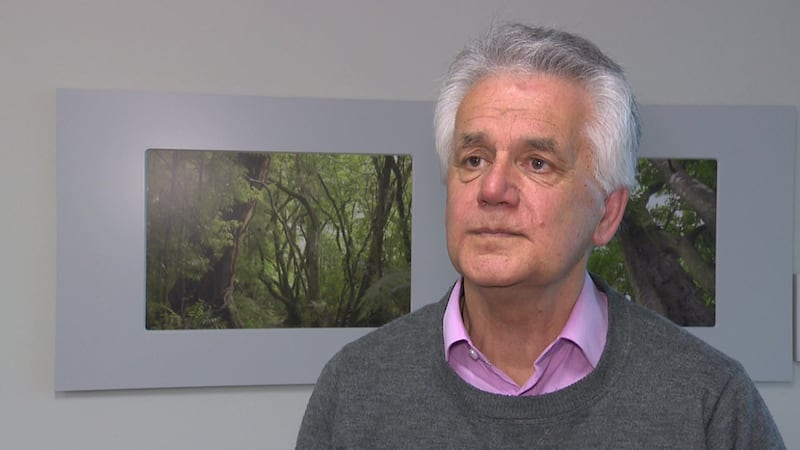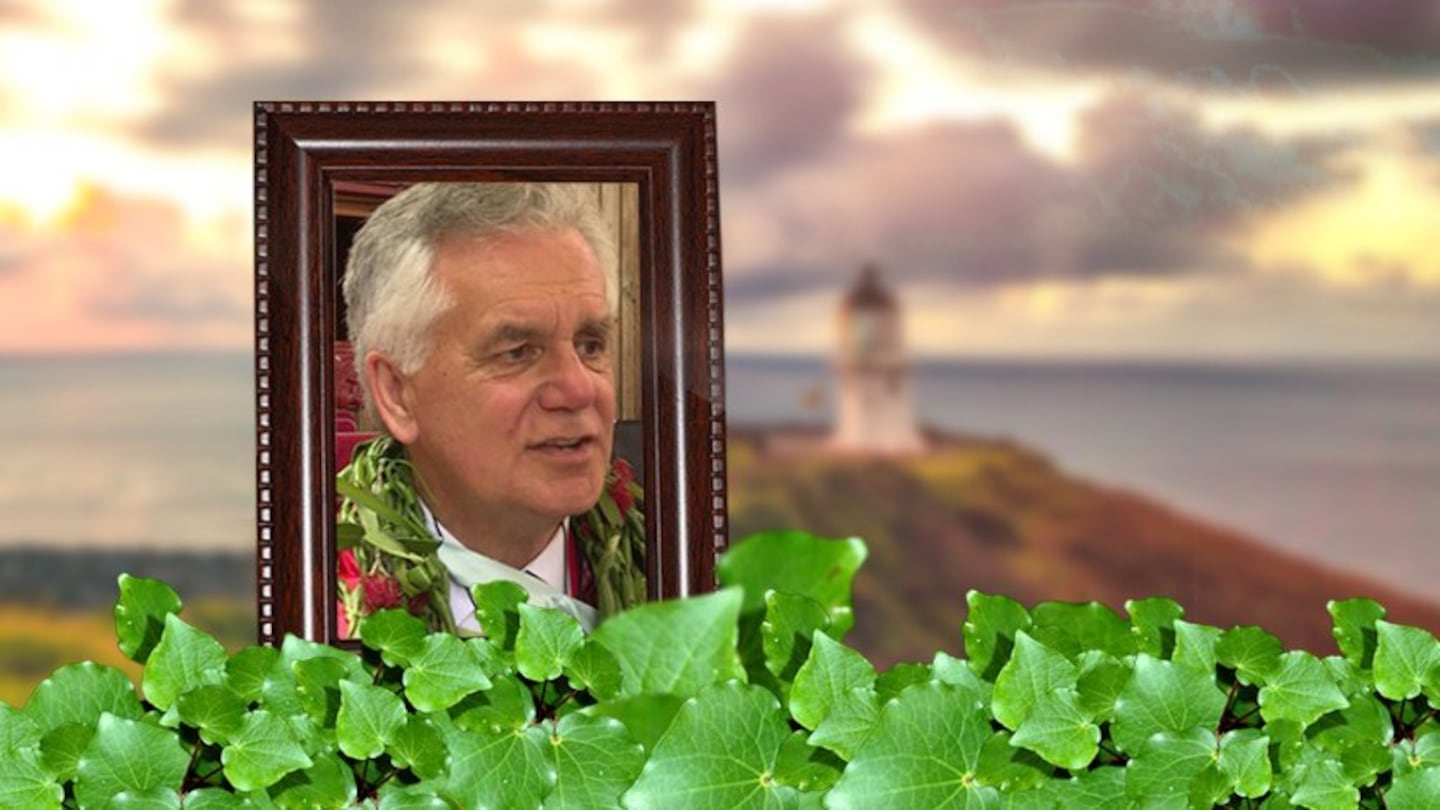Renowned legal scholar Dr Te Moana Nui a Kiwa Jackson (Moana Jackson) has died of cancer at 76 less than a year after his national contributions to whānau, hapū and iwi were recognised by the National Iwi Chairs forum’s inaugural Te Whare Pukenga award.
The softly spoken Jackson, of Ngāti Kahungunu and Ngāti Porou descent. specialised in constitutional law, the Treaty of Waitangi and international indigenous issues and wrote significant works that have had enormous influence in law, criminal justice and indigenous rights fields. In recent times he has been referred to as "the quiet revolutionary".
He served as a judge on the International Tribunal of Indigenous Rights in Hawaii in 1993 and again in Canada in 1995. He was also counsel for the Bougainville Interim Government during the Bougainville peace process.
But Ngāti Kahungunu Iwi chairman, Ngahiwi Tomoana, in nominating him for the Te Whare Pukenga award, said "Moana is a quiet and humble man who has turned down offers of honours and public recognition of achievements. His humility is well captured about him in a recent publication (Imagining Decolonisation); "Moana likes telling stories to and for his mokopuna and hopes they grow up in a land where Te Tiriti is finally seen as the base for respectful political relationships. Then there will be other stories to tell.
Contemporary colonisation practices
The award cited his “outstanding contributions as an advocate, facilitator and educator for Te Tiriti o Waitangi and human rights and social justice”.
The forum said he had demonstrated outstanding leadership in helping whānau, hapū and iwi make decisions about their development. “He is an expert in Te Tiriti, indigenous rights, tikanga, law and history and uses his skills as an educator, motivator, facilitator and advocate to help all people understand colonisation and the impact it has had on Aotearoa.”
His report, He Whaipaanga Hou published in 1988, was ahead of its time, providing solutions to help shape the criminal justice system so that it works fairly for Māori and for all New Zealanders. The report was the product of interviews with hundreds of people talking about the justice system and its impact on whānau and was written during his tenure as director of He Kaiwhakamarama I Nga Ture (the Māori legal service he co-founded in 1987).
The forum said his papers on the Fiscal Envelope (1994) and Foreshore and Seabed (2004/5) legislative changes helped people understand how governments restricted the rights of Māori. This knowledge enabled New Zealanders to protest and bring international attention to the contemporary colonisation practices of governments.

Constitutional blueprint
In 2016, Jackson led a team that produced Matike Mai, a blueprint for constitutional transformation. "It is a core text for law students in Aotearoa and continues to provide hope for a fairer future for Māori and all New Zealanders."
He helped shape the United Nations Declaration on the Rights of Indigenous Peoples. He led the working group tasked with putting the draft together. He supported and mentored young Māori lawyers, provided advice and training to many people working for government departments and iwi organisations.
Jackson is the third son of six of All Black Everard Jackson and his Ngati Kahungunu mother, Jane. He was also a grandson of New Zealand national rugby league team representative Frederick Stanley Jackson. His brothers include the late unionist, Ngā Tamatoa founder and te reo advocate, Syd Jackson and the late Bob Jackson, who co-founded the Manukau Urban Māori Authority and the Ngā Waatea Marae in South Auckland with his wife Dame June, who died earlier this week and is lying in state on that marae.
Though Jackson never married, he raised a whangai son, Hatea Ruru. He lived with his son and his wife Diane in Waimana during his illness and died there at 5am today.
Jackson graduated in law and criminology at Victoria University of Wellington, and after a short period in practice taught te reo before further studies in the US where he completed further studies about the Navajo Nation.
Principled position
Jackson returned to New Zealand to conduct research for the Justice Department where he wrote Māori and the Criminal Justice System: A New Perspective, He Whaipaanga Hou published in 1988. His report offered a new perspective to reshape bias against Māori – a Māori justice system. At the time it was heavily criticised.
Today it continues to influence policymakers and is discussed in law schools. He later co-founded Te Hau Tikanga (the Māori law commission). That same year he co-founded Ngā Kaiwhakamārama i Ngā Ture (the Māori Legal Service) with Caron Fox, who is now the deputy chief judge of the Māori Land Court and deputy chair of the Waitangi Tribunal.
Jackson was a vocal critic of the government's foreshore and seabed legislation in 2004.
He also strongly objected to the October 2007 police raids on Tūhoe. He resigned as patron of the Police Recruit Wing 244 due to his opposition to how the raids were conducted saying, "I do not buy that this was a racially-neutral act".
In 2017 Jackson was awarded an honorary doctorate from Victoria University for his contribution to legal scholarship on the Treaty and how Māori are treated by the justice system.
Even as late as December, Jackson was still writing. In E-Tangata, in a commentary on Covid-19, he wrote: " Arundhati Roy wrote last year that the pandemic could actually be seen as a portal, a gateway between one world and the next. In words of wisdom and hope, she suggested that "we can choose to walk through dragging the carcasses of prejudice . . . and dead ideas . . . or we can walk through lightly, with little luggage ready to imagine another world."
"The goodwill shown by many during the pandemic could be the guide for a similar portal in this country. It could, in fact, be the base for a new politics and a more honest constitutional recognition of Māori authority and the equitable relationship promised in Te Tiriti.
"Although some will be opposed to such a change, there are also many people, especially young people perhaps, who see the need for transformation. They are willing to work towards changing what might seem an unchangeable reality."


